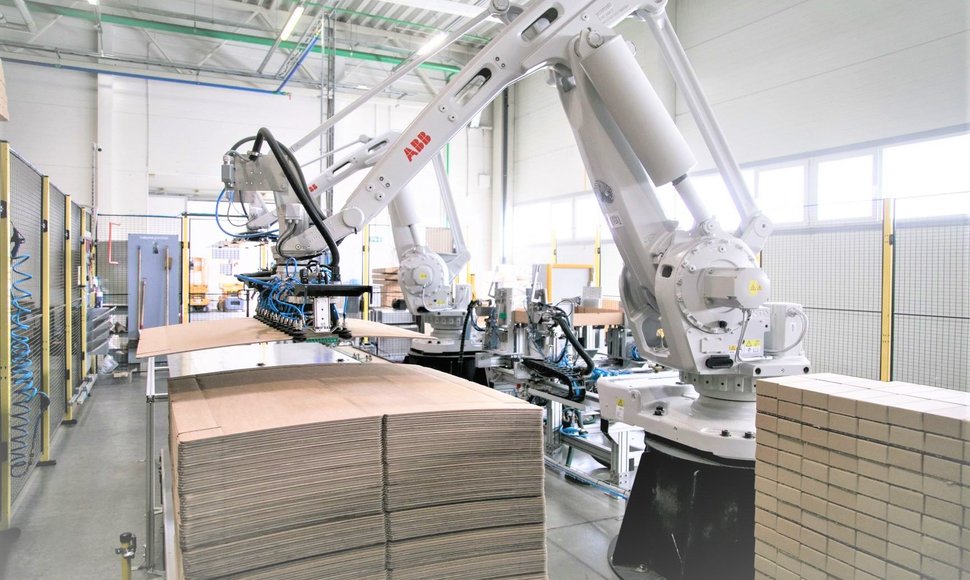These weak spots include insufficient or non-existent digitisation, as well as disruptions in supply across various industries. The pandemic is expected to pass, but new challenges will arise in the future and these problems will not vanish, with now being the time to look into strengthening businesses, according to the experts.
One of the means of companies growing stronger is to join forces and seek joint solutions, and industrial alliances operating across the European Union are a prospective space to seek business partners.
“Companies should consider the opportunity to participate in alliance activities and make greater use of the advantages of being a member of the European Union,” says UAB PPMI Group research manager Mantas Pupinis, adding that it is also an option to participate in a variety of EU projects.
Making use of opportunities for cooperation
Alongside cooperation with companies, it is also worthwhile considering collaboration with universities. PPMI Group is currently drafting the study Lietuvos pramonės integravimas į Europos ir pasaulinės vertės grandines [The integration of Lithuanian industry in European and global value chains], which is already offering up specific insights.
“Business–university cooperation is advised on the basis of specific value creation oriented goals. Businesses and universities should concentrate on very specific pursuits that can be commercialised and offer added value,” says M. Pupinis. According to him, encouragement for cooperation should be offered by way of forming missions and projects where the public sector could seek combined efforts from the business and university communities.
Networking – an essential form of cooperation for future success
During the pandemic, the lack of networking between companies was brought into the spotlight. With supply chains breaking down, companies began seeking suppliers in Lithuania, but a single supplier might not be capable of filling the entire emerged gap and complete orders. According to the research head at PPMI Group, it hence comes as no surprise that the pandemic was a stimulus for major companies to seek larger networks of suppliers.
“Now is an excellent time for companies to seek to establish contacts with major European companies, and step into their supply networks, and at the same time think about their own supply networks. It is crucial to give thought to how to diversify these,” M. Pupinis notes.
An example of successful networking outside of the industrial sector is the European digital innovation centre EDIH4IAE.lt, which is managed by the Lithuanian Innovation Centre (LIC) and which conjoins the potential of science and technologies, and encourages cooperation between companies in seeking solutions to contemporary challenges. The goal of this international project is to increase the effectiveness of the digital transformations in the industrial, food and energy sectors, and the initiative has already integrated into international networks.
“Discussions are already underway, actions are being coordinated, and we are participating in competitions with more than 11 similar organisations in Europe in order to ensure that businesses can be offered as wide as possible a spectrum of services,” the LIC’s Innovation Support Service Department head Artūras Jakubavičius explains.
Strengthening local business
The growth of local businesses could also become an opportunity to enter the international market. “For example, the growth of Panevėžys region is relatively strongly tied to the growth of local companies compared to the Lithuanian average. This and other regions could employ a positive strategy given such trends, and they could continue to strengthen local companies while at the same time attract supplementary foreign investment,” M. Pupinis believes.
The PPMI Group representative states that it is worth taking a smart and specific attitude to investment rather than trying to attract anything, which could somewhat demolish the existing system and poach staff from companies that are already operating with great success.
In terms of Panevėžys’ case, M. Pupinis emphasises that the region has no lack of companies which are truly innovative and could definitely compete with most foreign companies, with Finland being known for successfully implementing such a strategy: “The country supports local industrial growth and maintains an openly reserved attitude toward foreign direct investment while not trying to intentionally attract companies, which might compete with local, national capital businesses.”
Panevėžys – a good practice example in Lithuania
The rapid development in Panevėžys of applying manufacturing automation and digital solutions can be called a good practice example in the country. Experts participating in the seminar emphasised that there are opportunities to increase business resilience, but nevertheless, all that is needed is to come together in strengthening combined competitive advantages, developing operations scales by joining European value chains, and implementing necessary operational digitisation solutions. These actions would further allow the city’s companies to strengthen their positions in the Industry 4.0 domain even more.












